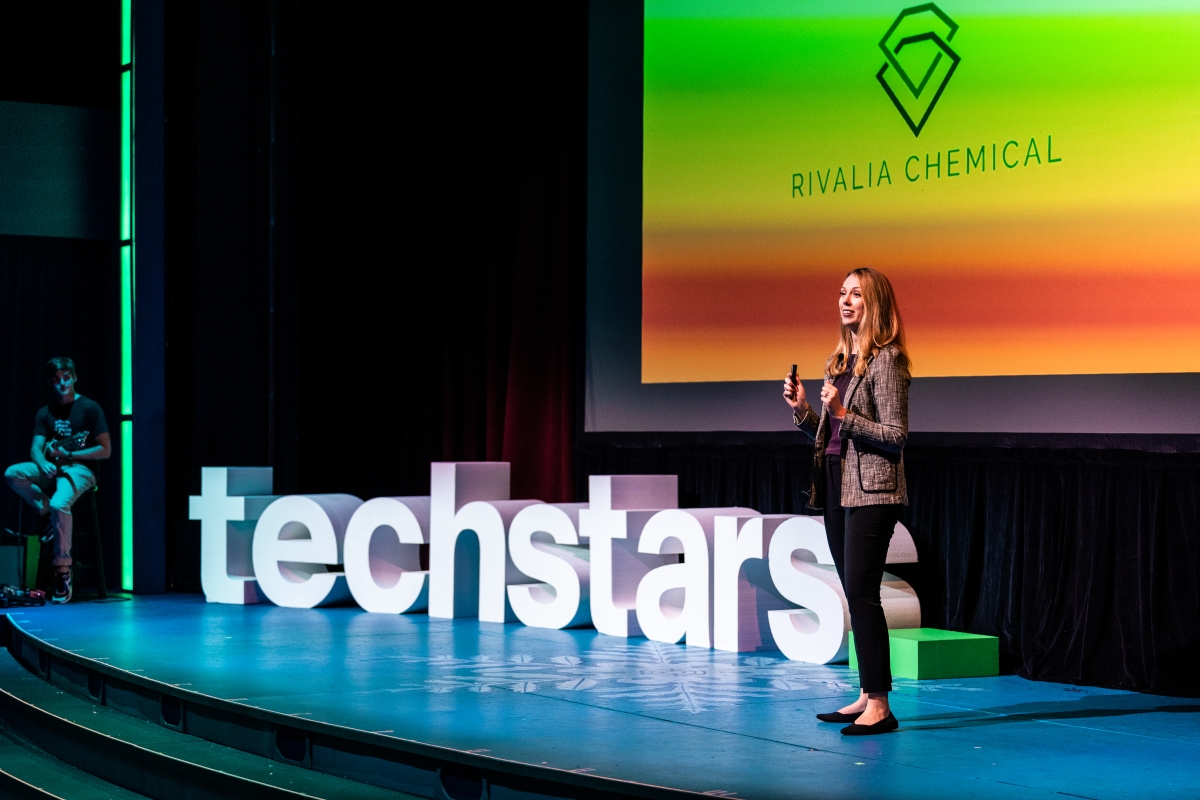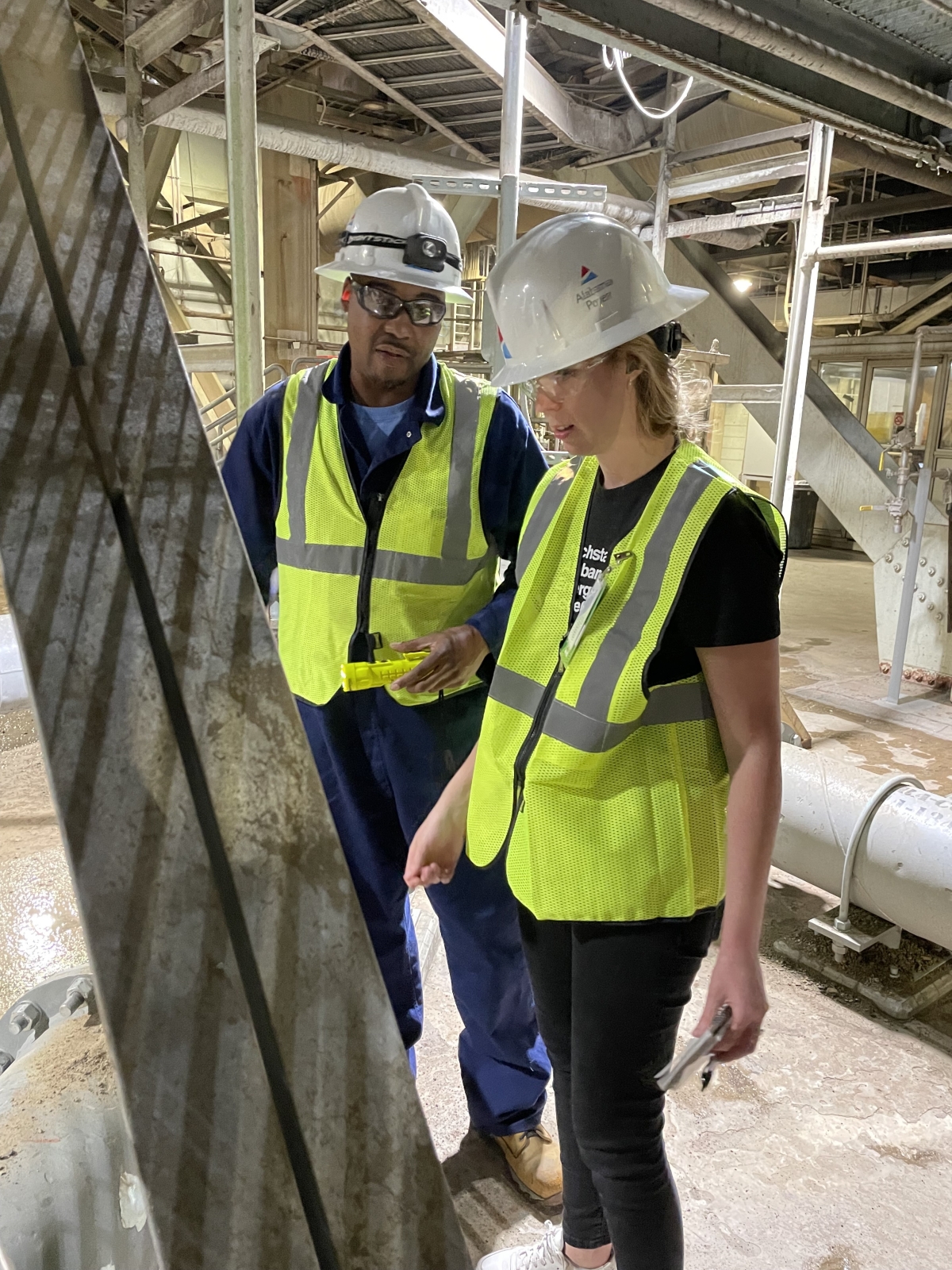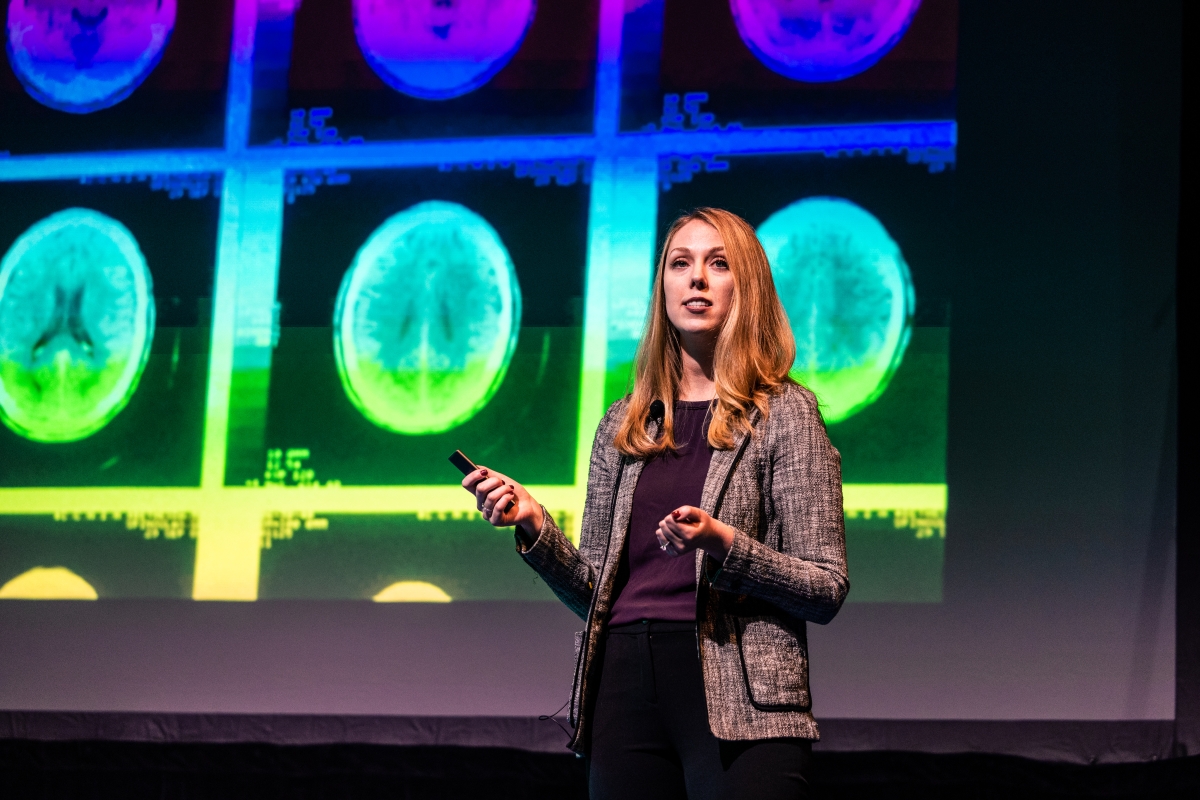Since leaving Georgia Tech, Laura (Mast) Stoy, PhD EnvE 21, has continued to pursue her research, this time as an entrepreneur.
The environmental engineering graduate founded Rivalia Chemical Co. with her sights set on commercializing her work as a PhD student. Over the past two years, Stoy has been selected for a competitive business incubator and a prestigious fellowship for entrepreneurs.
Stoy and her advisor, Turnipseed Family Chair and Professor Ching-Hua Huang, discovered that by applying an ionic liquid directly to solid coal fly ash, rare-earth elements (REEs) can be successfully removed in a safe process that creates little waste.
REEs are a set of elements that are necessary to manufacture technology like smart phones and LED screens, and play important roles in clean tech applications like electric vehicles and wind turbines.

Laura Stoy gives a presentation as part of the Techstars Alabama EnergyTech Accelerator.
Coal fly ash is a byproduct from coal-fired power plants. This waste produced by burning coal for power can have concentrations of REEs similar to those found in raw ores. While some coal fly ash can be reused in concrete and construction products, much of it ends up being disposed of in large sites called ash ponds.
There are more than 700 coal ash ponds in the U.S., many located in the Southeast, that contain a total of two billion metric tons of ash.
“I’m an environmentalist at heart and I really want to clean up the old ash ponds,” Stoy said. “What we have stored in these ash ponds is 100 years of demand for rare earths in the U.S.”

Laura Stoy during a power plant visit with Alabama Power.
While at Georgia Tech, Stoy was able to successfully extract REEs from coal fly ash at bench scale. With Rivalia Chemical Co., she hopes to further develop the process so it can be economical on a larger scale.
Stoy feels strongly that her technology could create a sustainable, domestic source of REEs to diversify the nation’s rare earth supply chain and limit its reliance on foreign mining operations.
“Right now there are no companies that can do that, so we’re relying on low-cost rare earths from China and other countries. China still controls over 80% of the processing and separation of rare earths and most of the production,” Stoy said.
Others have recognized the potential of Stoy’s concept, too. She was accepted to participate in a three-month business accelerator designed specifically for startups addressing innovative electrical and utility solutions.
In the Fall of 2022, Stoy participated in the third cohort of the Techstars Alabama EnergyTech Accelerator, which included 10 startup founders from around the nation and the world selected through a rigorous admission process.
Stoy temporarily relocated to Birmingham, Ala., to participate in the program, which she described as “compressing two years of business development into three months.”
There were long days with lots of learning and networking with other entrepreneurs that Stoy said helped to bolster her confidence in the financial side of running a startup.
“As a grad student I wrote grants—that’s asking for a lot of money,” Stoy said. “But that’s not the same as asking someone for millions of dollars. I learned how to have that conversation gracefully and remove obstacles. That’s not something that I’ve ever learned before.”
Following her Techstars experience, Stoy was accepted into the Chain Reactions Innovations Fellowship at Argonne National Lab. This two-year program accepts only four startups each year to develop their clean energy and science-based technologies. The fellowship provides funding, access to Argonne’s world-class facilities, and expertise and support from their research staff.
Reflecting on her experience, Stoy is happy to see new programming related to entrepreneurship within the School of Civil and Environmental Engineering, including an innovation and entrepreneurship track for undergraduates and the annual Entrepreneurial Impact Competition. She hopes that more graduate students will see the benefits of becoming an entrepreneur.

Laura Stoy gives a presentation as part of the Techstars Alabama EnergyTech Accelerator.
“I think grad students have a lot of responsibilities that translate well to starting a business: You have to manage your own time and find your own funding, the hustle is very similar,” Stoy said. “Really what grad students need though is more role models: to see people come out of their PhDs and start companies.”
